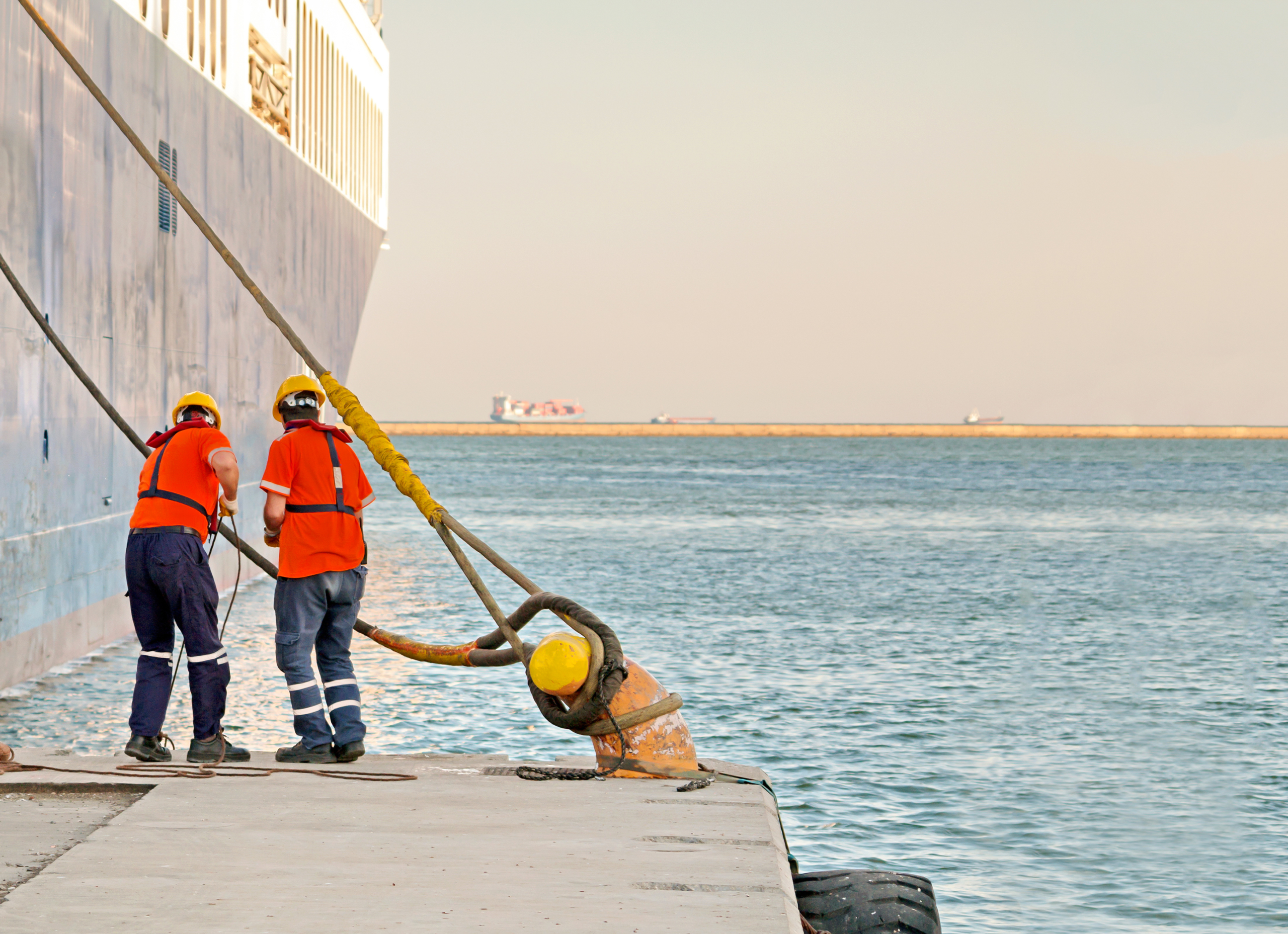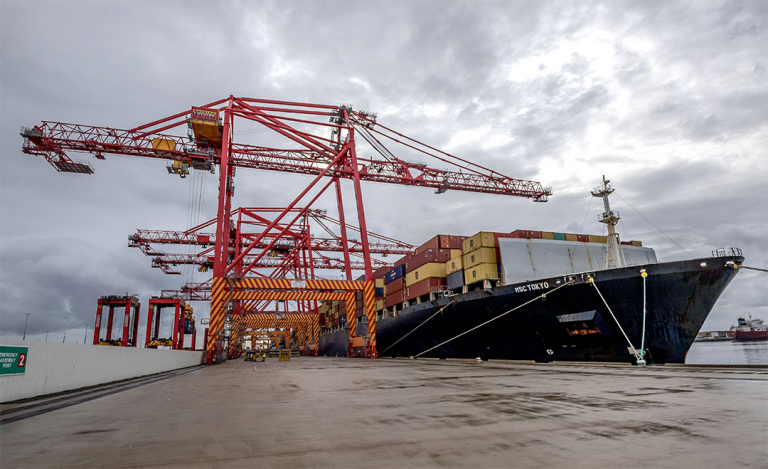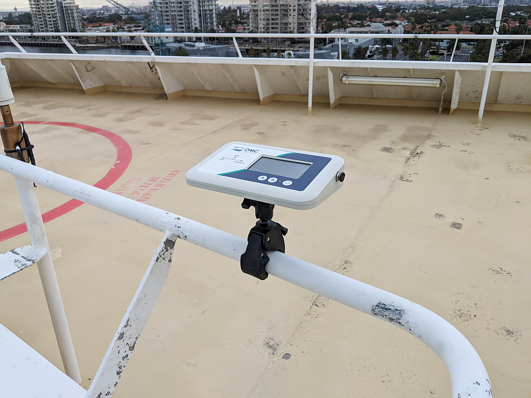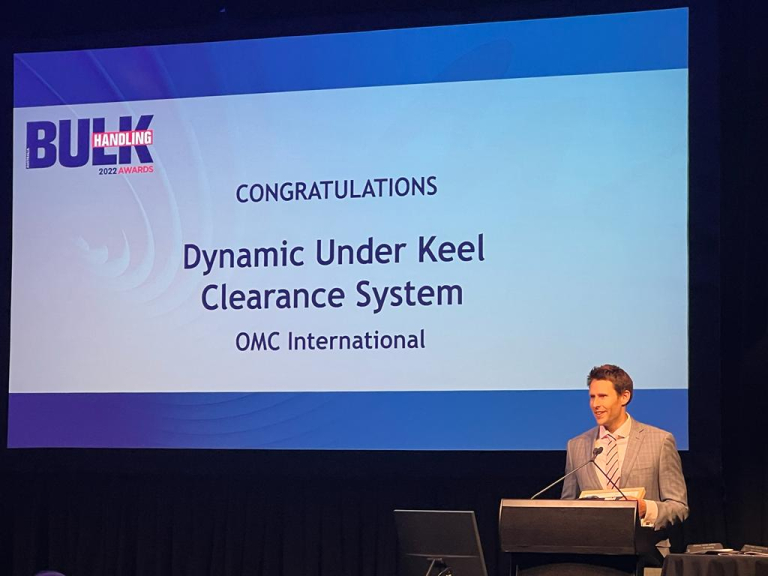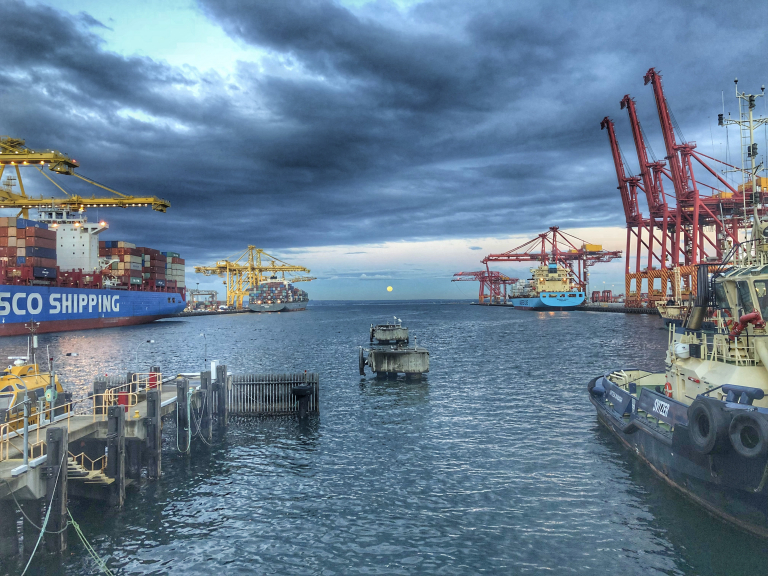Along the North-West Shelf of Australia, mining export operations must work in tune with nature’s whims. This paper discusses some of the refinements that have been made to enable loading and mooring operations to work more effectively with the environmental conditions on a daily basis for the port of Cape Lambert. This approach is shown to have a positive impact on moored vessel safety and port throughput efficiency. Though infrequently dangerous to deep draft vessels, the swells that propagate along the NorthWest Shelf (some from as far away as the Antarctic ocean) can on occasion threaten safe sailing opportunities due to ship motions and under-keel clearance concerns. Furthermore, large swells, along with strong winds and currents, can be dangerous to moored vessels, causing increased line tensions and potential line breakage.
Depending on port operations, shippers may have pro-active measures to manage hazardous conditions, such as deploying tugs to assist moored vessels. However, deploying such measures comes at a cost, for instance burning thousands of litres of fuel and exposing operations to dangerous conditions. Therefore, users require accurate information on the potential levels of line breakage to help make informed decisions between the ‘do-something’ and ‘do-nothing’ options, i.e. balancing the costs of deploying preventative measures with the potential costs of line breakage. To operate safely and economically, shipping operations make use of stochastically enhanced forecasts to ensure that modelling inaccuracies are accounted for, and that local observations can also be used to inform predictions. All the data sources (waves, wind, and currents) are incorporated into a single model which generates warning levels, giving users an easy-tounderstand idea of the potential dangers to moored vessels without having to view and interpret multiple data sources which may be difficult and imprecise.
Click here to read the full article: https://wpstaging.omcinternational.com/wp-content/uploads/2010/06/Coasts-Ports-2017-The-impact-of-met-ocean-forecasts-on-exports-on-export-shipping-operations-on-the-North-West-Shelf-of-Australia.pdf
